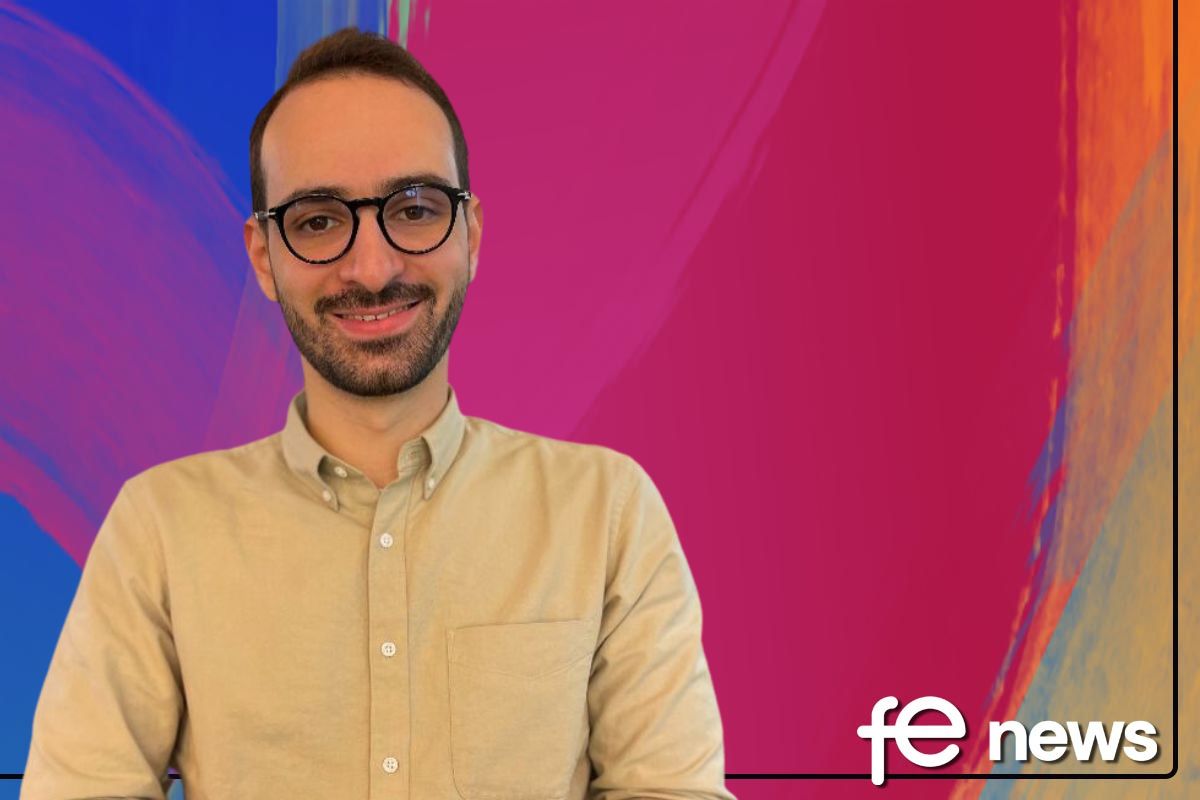Searching for the ‘Correct Way’ to Teach and Learn About AI

Bassim Hijazi, responsible for digital media and communications and content production at Qatar Foundation’s education initiative, WISE, explores the ‘correct way’ to teach and learn about AI education. Hijazi discusses the purpose of why we learn in an age of information bombardment.
In my role as a host on WISE’s On Air podcast series, AI has been a hot topic of debate. Recently, AI leaders representing big names like OpenAI, DeepMind, and Google came together to sign a statement that urged caution to AI development worldwide. While there is plenty to be excited for, there is of course, a lot of concern.
Time Magazine recently wrote a piece comparing the development of this technology to the way nuclear energy was propagated. Some would even liken it to an AI arms race. Research on nuclear power began with the intention of advancing nuclear energy for the benefit of mankind. Yet, fear mongering can cause escalation – and the Manhattan Project becoming a reality is a clear example of this.
Amidst this chaos of such easily accessible and generative information, and talks of working alongside AI and leveraging it to transform education, we have to ask ourselves a fundamental question: Are our education systems falling behind in teaching us the most important lesson of all: the purpose and meaning of learning?
Not letting technological advancements detract from learning
A few weeks ago, I met Nadeem Nathoo, the co-founder of The Knowledge Society (TKS), which he describes as a ‘human accelerator’ for young teens looking to change the world, but do not know where to start. To my surprise, he said that he was largely disappointed with the level of ambition globally when it comes to education and its adoption of new innovations.
He said that everyone was thinking incrementally about the use of AI in education, referring to recent prominent talks on advancements to personalised learning and tutoring.“Most people do not care about being educated” and such recent strides are not going to make young people who do not care about learning suddenly see the value of it.
He said that what we need is a paradigm shift in education. We needed to rethink how we teach and learn about AI – and everything else for that matter. And that is what they have been doing with teens at TKS. As he spoke, I recalled my own experience with school. Most of my life, I had always seen learning as a steppingstone and had always done what was expected, not what was meaningful, at least in school itself.
It was not until I met a professor in university who took interest in me as a human being and made me see that learning is more than a curriculum. It is a way of life. In other words, he showed me the purpose of learning.
It became apparent to me that no technological breakthrough conceived in my lifetime was going to be enough for me to break out of that loop. But those meaningful conversations with my professor did.
There were many seemingly threatening advancements in technology that made us question the state of our education systems. Calculators spelled out the doom of mathematics, only for examinations to focus on problem-solving over simple calculation. The advent of the internet conjured fears of plagiarism and cheating only for tech companies to develop software that can identify it. These problems have and will continue to exist.
We can do our best to curb their impact, but the real challenge is instilling the purpose of why we learn in an age of information bombardment. AI is a very powerful tool and will only continue to evolve – but we as educators need to be teaching and reminding ourselves about the most fundamental lesson of all that no AI can teach – why we should learn.
Navigating AI at our fingertips
AI is not a new phenomenon. It has been around for decades, but it has gained unprecedented momentum in recent years thanks to breakthroughs in deep learning, natural language processing, computer vision, and reinforcement learning. These advances have enabled AI to perform tasks that were once considered impossible or too complex for machines, such as playing chess, diagnosing diseases, composing music, or generating text.
In the past few weeks alone, AI has continued to make notable strides. OpenAI recently updated its AI-powered learning platform ChatGPT with GPT-4 – one of its main features being the ability to recognise and make sense of images. Huawei also recently announced its Pangu Model 3.0 – a development that can adapt to specific user needs across various industries, whether it be supporting the prediction of typhoon routes or detecting foreign objects on a conveyor belt.
Recently, Sam Altman, co-founder and CEO of OpenAI, visited Education City in Qatar and gave a talk about the future of AI. He predicted that mankind’s productivity could increase more than 20-30 times that of today. He also said that AI could create new jobs and industries that we cannot even imagine right now. He painted a picture of a world where AI could solve many of our problems and enhance our lives. Yet, the reality is that many of us are struggling to keep up. In the case of the United States alone, most people have heard of ChatGPT, but shockingly only 14% of those surveyed by Pew Research Center have used it. What could the statistic reflect for the rest of the globe and how do we cope with this information overload and maintain a successful education system?
These are some of the questions that educators need to address in order to prepare future generations for the challenges and opportunities of the AI era and maintain interest in learning.
While I was intrigued by his vision, I had to take it with a grain of salt. We have heard countless promises of what technological strides could mean for learning outcomes, yet far too often does the execution fail to match the ambition. The impacts of AI will be far reaching, and the education sector will not be exempt. Yet, whilst trying to navigate developments in AI, it is vital for educators to not lose sight of the true purpose of learning – stepping outside of the curriculum and finding meaning in it.

FE News on the go…
Welcome to FE News on the go, the podcast that delivers exclusive articles from the world of further education straight to your ears.
We are experimenting with Artificial Intelligence to make our exclusive articles even more accessible while also automating the process for our team of project managers.
In each episode, our thought leaders and sector influencers will delve into the most pressing issues facing the FE sector, offering their insights and analysis on the latest news, trends, and developments.











Responses